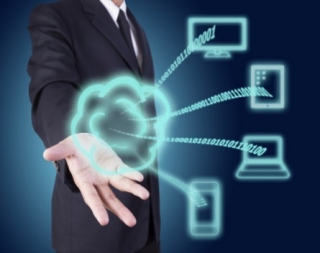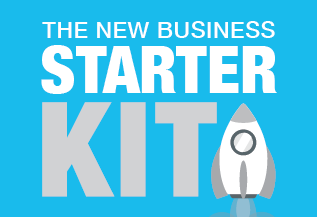Cloud Accounting - Just Hot Air?
 Accounting firms around the country and their small business clients are moving to cloud accounting. While we will always support non-cloud based programs here is a short guide on the ins and outs of cloud accounting.
Accounting firms around the country and their small business clients are moving to cloud accounting. While we will always support non-cloud based programs here is a short guide on the ins and outs of cloud accounting.
What is the Cloud?
You may already be operating in the cloud. An example of this would be online banking where your data is stored securely for access from various sources. You can access your data anywhere, anytime from any device. Cloud accounting operates the same way and you no longer have to rely on a single hard drive for your financial data.
Disadvantages of Desktop Financial Software
Traditional accounting software is generally licensed for a single computer, office or desk. There are costs for keeping the software up to date and storing data on USBs and emailing files can be inconvenient plus can create confusion regarding which data file is the latest. In some cases, it can prove to be expensive to buy the software in the first place then add extra users as the business grows. With desktop software it may not be possible to remotely access customer details, files or other financial data.
Advantages of Cloud Accounting Software
- The number one advantage of cloud accounting software is access to your data from anywhere, anytime with any kind of device with an internet connection.
- Financial data operates in real time with many bank accounts and other sources flowing automatically into the software.
- Most providers allow for simple subscriptions which means that team members can be easily added as the business grows.
- There are generally powerful applications and tools available to process data which may have been quite expensive to access using traditional desktop financial software.
- The software program will always be up to date.
- Automatic ‘back up’ as all entries occur in real time. If a laptop was stolen or lost, or a disaster like a flood occurs, putting the workplace out of action, the online data is still available from any other source which eliminates any potential downtime.
Disadvantages of Cloud Accounting Software
- Potential Loss of Sensitive Data.
Technically you are losing control of your data by entrusting it to the cloud. While established cloud accounting vendors promote that they have the latest, most sophisticated data security systems possible, there is still an element of risk whether it is from hackers, disgruntled ex-employees or inadequate username and password security. Conversely, because large providers have more resources, they are often able to offer levels of security beyond the budget of an average small business. - Loss of Internet Connection
If you (or indeed your business location) suffers from internet outages or slow speeds, cloud solutions may not be suitable for your circumstances. Without a reliable internet connection a cloud solution will prove very frustrating. - Cost
Although most providers advertise on a pay as you use basis, check the contract as there is often a pre-determined period that you are contracting to. Ensure that you have the ability to add and subtract users as your business expands or contracts. - Data Back Up
Some providers don’t provide any facility for backing up your data to your own computer, which would only become a problem if you decide to change providers. It is possible to lose the data entered in your previous provider or to have to continue to pay a subscription cost to access the data.
Click HERE to download the full edition of The Business Accelerator Magazine for December 2015.
Other articles in this edition:
- 4 Ways To Grow A Business
- Plan Your Success in 2016
- Is It Time to Turn Your Business into a Company?
- ATO Offers Help to Industries Struggling With SuperStream
- How To Claim Your Website Costs
- Phone Tapping Powers For ATO?
- Business Start Up Corner - It's Easy In Australia!
- Have Your Insured Your Biggest Asset?
- Increase Your Website Sales




